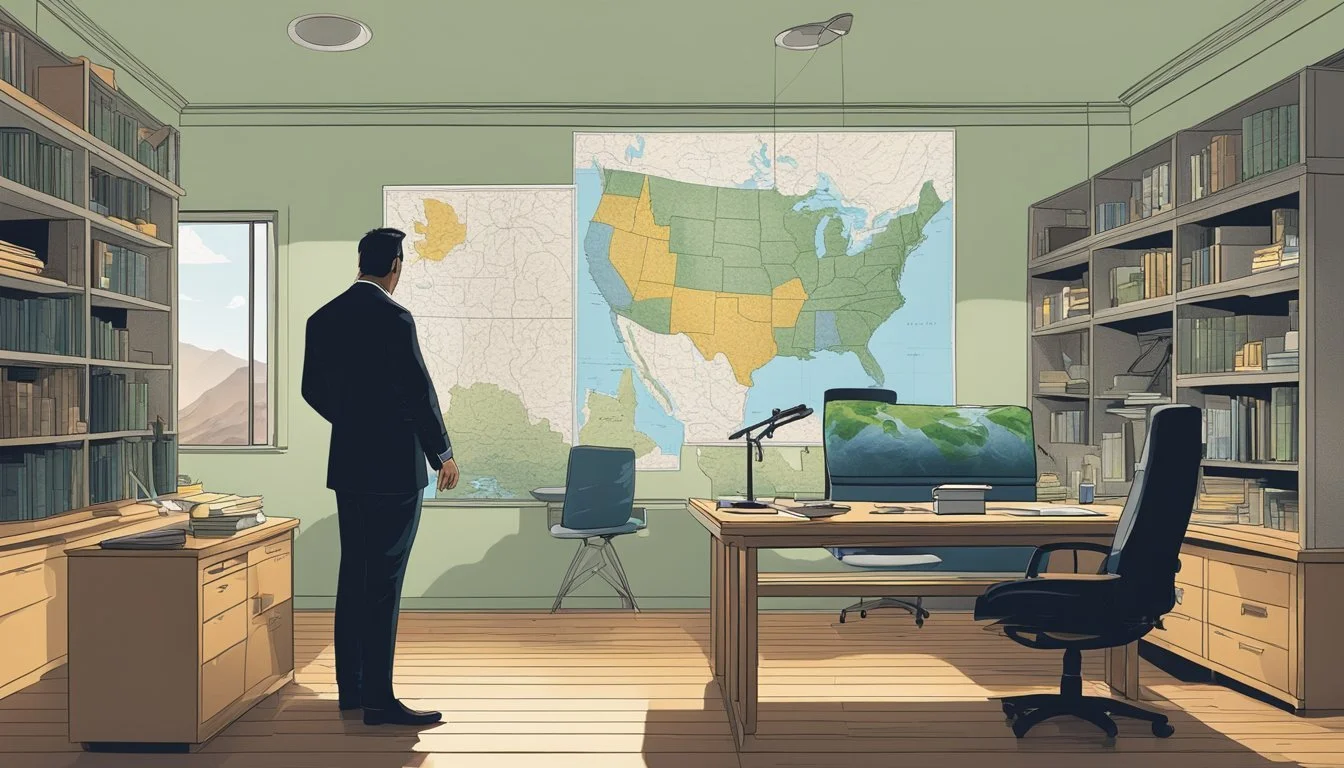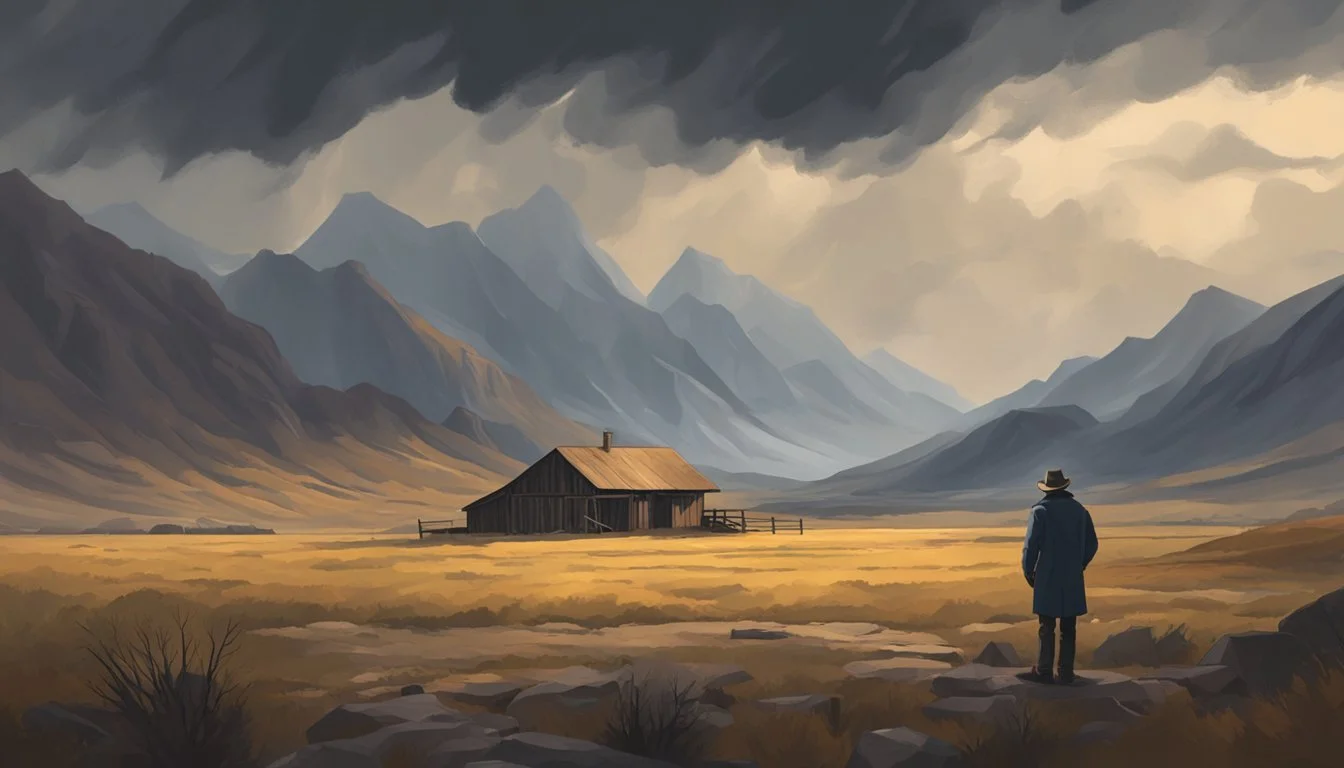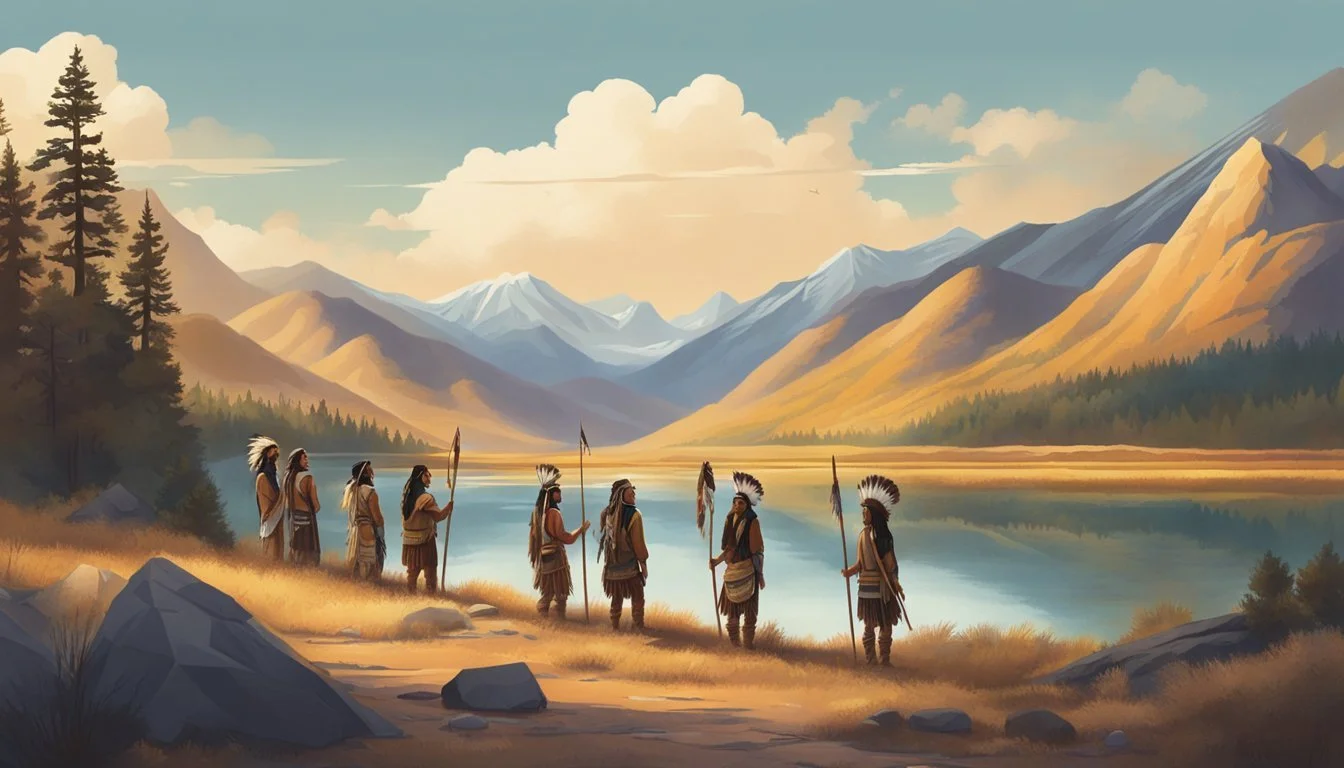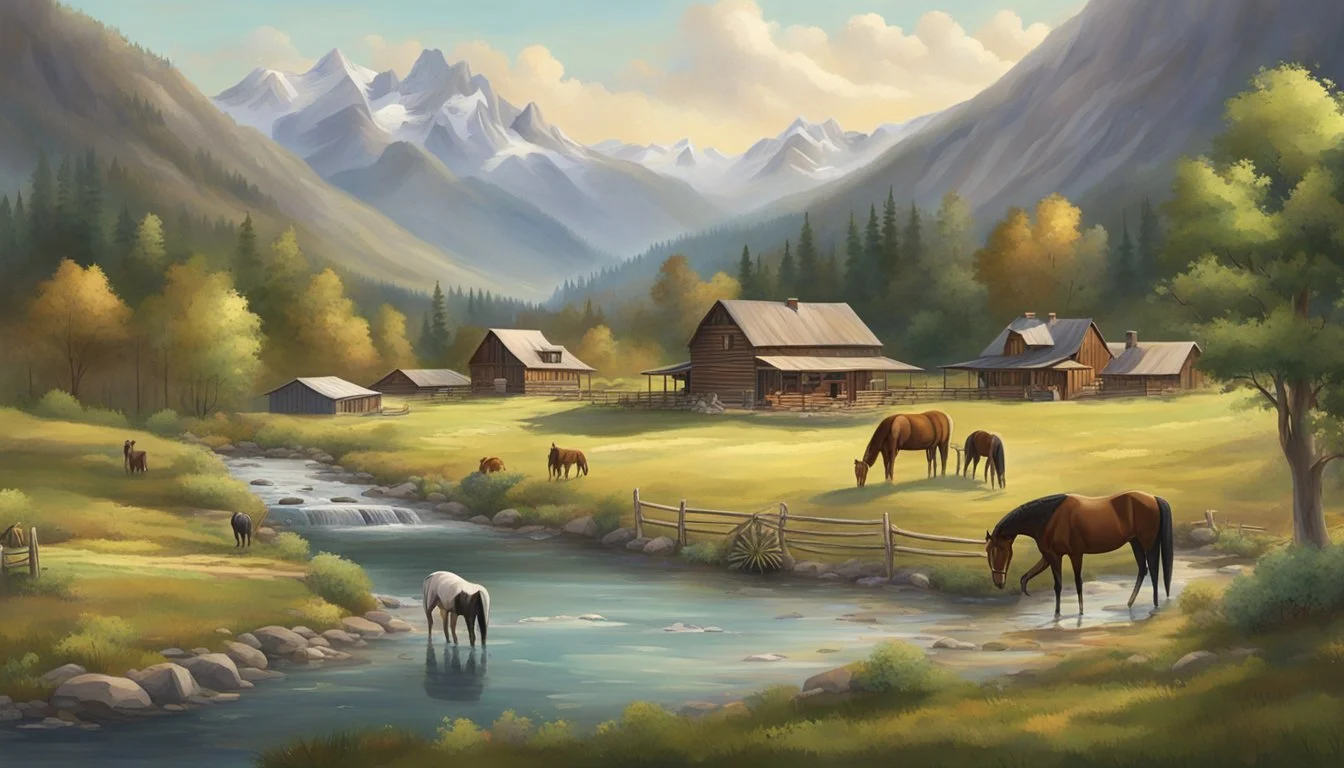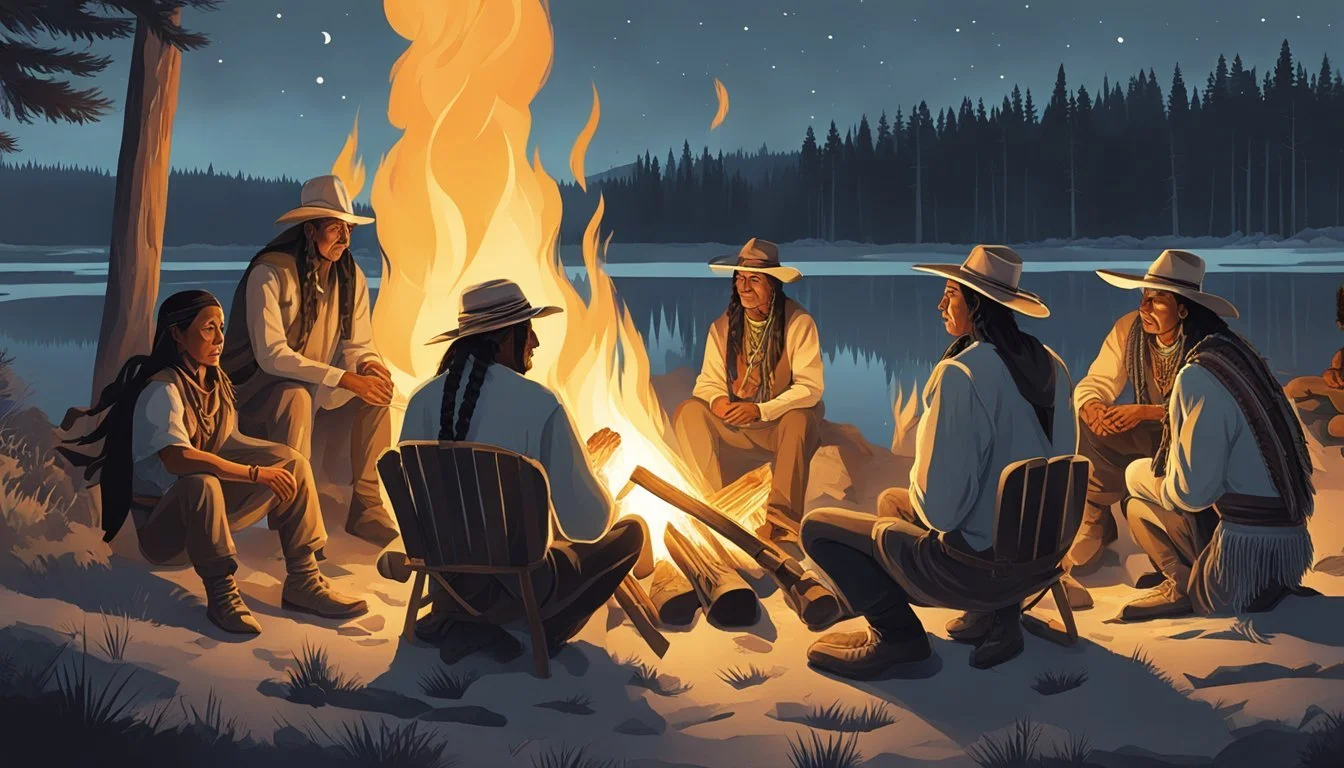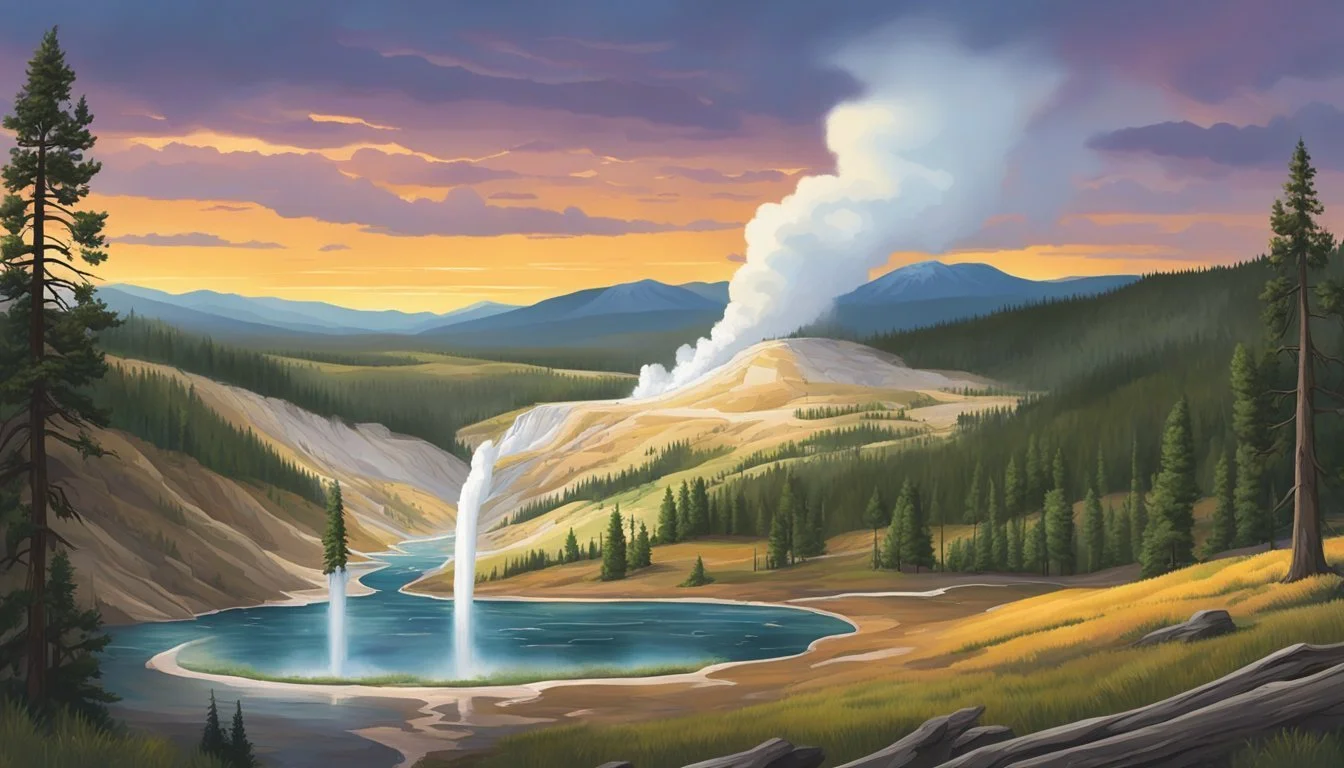6 Yellowstone Storylines Inspired by True Events
Historical Roots of the Hit Western Drama
Yellowstone, the hit TV series created by Taylor Sheridan, has captivated audiences with its gripping portrayal of the Dutton family's struggle to maintain control of their vast Montana ranch. While the show's dramatic storylines often seem larger than life, many of its plot elements draw inspiration from real events and issues facing the American West.
Yellowstone weaves together fiction and reality, incorporating authentic elements of ranch life, land disputes, and historical conflicts into its narrative. The series taps into genuine concerns about land ownership, resource management, and cultural clashes that have shaped the region for generations. By exploring these real-world connections, viewers can gain a deeper appreciation for the show's nuanced depiction of modern ranching and its complex challenges.
1) John Dutton's Land Battles
John Dutton's struggles to maintain control of his vast Yellowstone Ranch mirror real-life conflicts in the American West. The show draws inspiration from ongoing disputes between ranchers, Native American tribes, and corporate interests over land rights.
In Montana, where the fictional Yellowstone is set, ranchers have long faced pressure from developers and environmental regulations. These challenges often threaten their ability to maintain large cattle operations.
The series also reflects tensions between ranchers and Native American tribes. Historical land disputes between settlers and indigenous peoples continue to influence modern-day conflicts in the region.
Corporate interests seeking to exploit natural resources add another layer of complexity to these land battles. In reality, energy companies and real estate developers frequently clash with traditional landowners in the West.
Yellowstone's portrayal of political maneuvering and legal battles over land use echoes actual events. Many ranchers engage in similar struggles to protect their property and way of life from encroaching outside forces.
2) Beth's Corporate Sabotage Schemes
Beth Dutton's corporate sabotage schemes in Yellowstone draw inspiration from real-world business tactics. Her aggressive strategies mirror those used by some ruthless executives in high-stakes corporate environments.
Beth's manipulation of Market Equities echoes actual cases of insider trading and stock market manipulation. Her methods, while dramatized for television, reflect genuine concerns about unethical practices in the business world.
The character's use of blackmail and leverage against rival companies parallels real corporate espionage incidents. Beth's actions highlight the cutthroat nature of big business, where information and power are valuable currencies.
Her strategic moves to protect Dutton land from development resemble real conflicts between landowners and corporations. These storylines touch on authentic tensions between preserving natural resources and pursuing economic growth.
Beth's corporate maneuvering also showcases the complex dynamics of mergers and acquisitions. Her calculated approach to business deals reflects the high-pressure negotiations that occur in boardrooms across the country.
3) Rip Wheeler's Troubled Past
Rip Wheeler's backstory in Yellowstone draws inspiration from real-life tales of hardship on the frontier. As a young boy, Rip endured a traumatic event that shaped his future and brought him to the Dutton ranch.
His character's history mirrors the experiences of many orphaned children in the American West who found themselves taken in by ranching families. These arrangements often blurred the lines between adoption and indentured servitude.
Rip's fierce loyalty to the Duttons stems from this complex dynamic. His willingness to do whatever it takes to protect the ranch reflects the harsh realities faced by those living on the fringes of society in rural America.
The show's portrayal of Rip's journey from troubled youth to trusted ranch foreman echoes real stories of redemption and second chances. His character embodies the resilience and grit associated with the cowboy ethos.
Rip's past also highlights the cycle of violence that has plagued some rural communities. His ability to handle the Duttons' dirty work stems from a life marked by hardship and survival.
4) Market Equities' Aggressive Expansion
Market Equities, a fictional Fortune 500 real estate company in Yellowstone, mirrors real-world corporate land grabs in the American West. The company's ambitious plans to build an airport, ski resort, and entire city in Montana reflect actual development pressures faced by rural communities.
Their tactics of buying out landowners and using political influence echo strategies employed by large corporations seeking to acquire valuable properties. The conflict between Market Equities and the Dutton family represents the classic struggle between tradition and progress.
John Dutton's resistance to selling his ranch aligns with real-life ranchers fighting to preserve their way of life against encroaching development. The show's portrayal of legal battles and negotiations draws inspiration from actual land use disputes in scenic Western locations.
Market Equities' determination to claim the Yellowstone by any means necessary showcases the ruthless nature of corporate expansion. This storyline highlights the complex interplay between economic interests, environmental concerns, and cultural preservation in modern Montana.
5) Native American Land Struggles
Yellowstone's portrayal of land conflicts between ranchers and Native American tribes mirrors real-life events in the American West. The show draws inspiration from the ongoing struggles of tribes like the Crow in Montana, who have fought for centuries to protect their land rights.
The fictional Broken Rock Reservation in Yellowstone represents the challenges faced by many Native American communities. These include battles against encroachment, resource exploitation, and cultural preservation efforts.
Land ownership disputes depicted in the series reflect historical and contemporary issues. Native tribes continue to navigate complex legal and political landscapes to assert their sovereignty and maintain their territories.
Yellowstone's success has brought increased attention to these real-world conflicts. It has sparked discussions about indigenous rights and the ongoing impacts of colonization on Native American communities.
The show's narrative explores the tension between traditional ways of life and modern development pressures. This reflects actual dilemmas faced by many tribes as they balance cultural preservation with economic opportunities.
6) The Dutton Family Feud
The Dutton family's conflicts in Yellowstone draw inspiration from real-life feuds that have occurred in ranching communities. While the specific events in the show are fictional, they reflect genuine tensions that arise in such environments.
Land disputes form a central theme in these feuds. Ranch families often clash over property boundaries, water rights, and grazing areas. These conflicts can span generations, much like the Duttons' ongoing battles with neighboring ranchers and developers.
Power struggles within families are another realistic aspect portrayed in Yellowstone. Succession planning and inheritance issues frequently cause rifts in real-life ranching dynasties. The show mirrors these dynamics through the complex relationships between John Dutton and his children.
The series also touches on conflicts between ranchers and Native American tribes, reflecting historical and ongoing disputes over land rights. These storylines echo real-world tensions that persist in many parts of the American West.
Economic pressures facing modern ranchers add another layer of authenticity to the Dutton family's struggles. Many real ranchers face challenges from changing markets, environmental regulations, and encroaching development, mirroring the external threats depicted in Yellowstone.
True Events In The History Of Yellowstone
Yellowstone draws inspiration from real historical events and figures, blending fact and fiction to create its compelling narrative. The show incorporates elements from land disputes, tribal conflicts, and iconic Western personalities.
Inspiration From Historical Controversies
Land ownership conflicts between ranchers and Native American tribes form a central theme in Yellowstone, mirroring actual historical tensions. The show depicts struggles reminiscent of the Crow Tribe's centuries-long fight for land rights in Montana.
These disputes often involved competing claims to grazing lands and natural resources. In reality, such conflicts shaped the development of the American West and continue to influence modern-day policies.
Yellowstone also touches on clashes between ranchers and corporate interests, reflecting real-world battles over land development and resource extraction in the region.
Real-Life Influences on Characters
Several Yellowstone characters draw inspiration from historical figures and contemporary Western personalities. John Dutton, the family patriarch, embodies traits of powerful ranchers who have shaped Montana's landscape and politics.
The show's Native American characters reflect the complex relationships between tribes and non-native settlers. Their storylines often incorporate elements of actual tribal histories and ongoing sovereignty issues.
Yellowstone's portrayal of local politics and law enforcement also mirrors real-world dynamics in rural Western communities. These elements add authenticity to the show's fictional world, grounding it in recognizable Western archetypes and power structures.
Impact Of True Stories On Viewer Engagement
Yellowstone's incorporation of real-world events and issues enhances its authenticity and resonates deeply with audiences. This grounding in reality allows viewers to form stronger connections with the characters and storylines.
Connecting With Authenticity
Viewers appreciate seeing reflections of real-life challenges on screen. Yellowstone's portrayal of land disputes, rural values, and modern ranching struggles mirrors actual issues faced by many Americans. This authenticity creates a sense of familiarity and relatability.
The show's depiction of complex family dynamics and power struggles also rings true for many viewers. By addressing universal themes through a specific lens, Yellowstone invites audiences to see themselves and their experiences represented on screen.
Characters like John Dutton embody real-world dilemmas, making their choices and consequences more impactful. This grounding in reality fosters emotional investment and encourages viewers to tune in week after week.
Enhancing Story Depth Through Reality
Incorporating true events adds layers of complexity to Yellowstone's narratives. Real-life inspirations provide a rich foundation for storytelling, allowing the show to explore nuanced themes and conflicts.
Historical and contemporary issues surrounding land rights, Native American relations, and resource management inform the show's plots. This blend of fact and fiction creates a more immersive viewing experience.
The series' exploration of modern ranching challenges, based on actual industry struggles, lends credibility to its storylines. Viewers gain insight into a world they might not otherwise encounter, expanding their understanding of rural American life.
By tackling real-world topics, Yellowstone sparks discussions among viewers about important social and economic issues. This engagement extends beyond the screen, fostering a deeper connection between the audience and the show's content.



